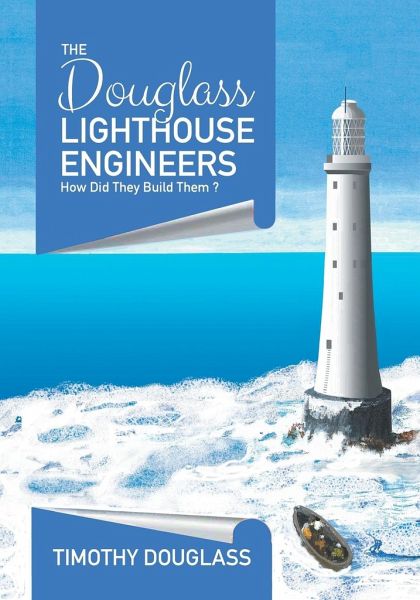
The Douglass Lighthouse Engineers
How Did They Build Them ?

PAYBACK Punkte
11 °P sammeln!
The book starts off with the plight of Edward Ward, a BBC correspondent, who, with his sound technician, was stranded in the Bishop Rock Lighthouse following a Christmas Day broadcast in 1946. Their departure was delayed for a month by raging storms. After being rescued, he wondered, "How on earth did they manage to build the lighthouse, a massive granite tower rising over 160 feet (49m) almost straight out of the sea, in one of the roughest locations imaginable?" With a foreword by Captain Ian McNaught, the Deputy Master of Trinity House, the Lighthouse Authority for England and Wales, and fo...
The book starts off with the plight of Edward Ward, a BBC correspondent, who, with his sound technician, was stranded in the Bishop Rock Lighthouse following a Christmas Day broadcast in 1946. Their departure was delayed for a month by raging storms. After being rescued, he wondered, "How on earth did they manage to build the lighthouse, a massive granite tower rising over 160 feet (49m) almost straight out of the sea, in one of the roughest locations imaginable?" With a foreword by Captain Ian McNaught, the Deputy Master of Trinity House, the Lighthouse Authority for England and Wales, and former master of the Queen Elizabeth 2, this question is addressed while covering the great lighthouse-building era of just over two centuries. Although the emphasis is on the work of three generations of Douglass Lighthouse Engineers during the second half of the nineteenth century, the parts played by many other people who contributed to making the seas safer are described, whether by designing and building lighthouses and beacons, or developing and manufacturing the lights and fog signals installed in them. One was Michael Faraday, the eminent physicist, who was Trinity House's Scientific Advisor for thirty years, who brought about the first practical use of electricity when an electric light was installed in the South Foreland Lighthouse in 1858. Much of the book is devoted to lighthouses built out to sea on small wave-swept rocks because of the tremendous challenges faced in building them. These range from the first lighthouse built on the Eddystone Rocks in the English Channel south of Plymouth, completed in 1699, to William Douglass' massive granite tower on the Fastnet Rock off SW Ireland, completed in 1904. The exceptional dedication and perseverance by those who were willing to work in very hazardous and uncomfortable conditions, often putting their lives at risk, is described, and remarkably few lives were lost. Many interesting stories and anecdotes are included.












